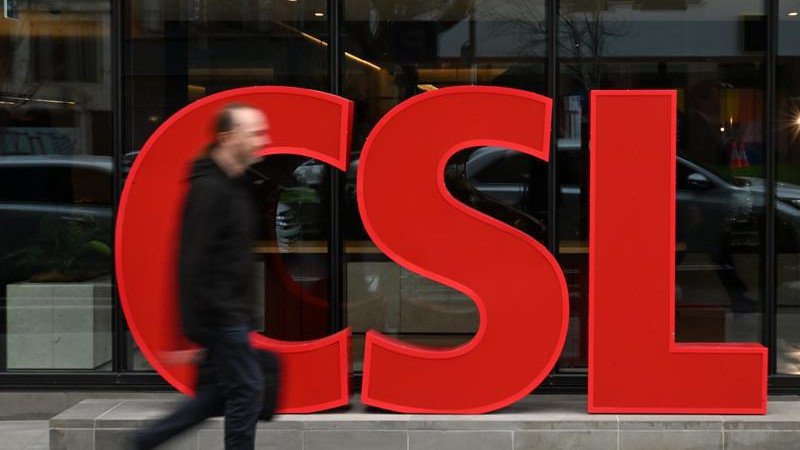CSL share price: Plunging US vaccination rates ravages Australian global pharmaceutical giant on ASX
The Melbourne-based blood-products company plans to cut $500 million in costs in response to slowing sales growth. Here is what’s behind the drop.

A decline in vaccine use in America under the Trump Administration’s vaccine-sceptic health secretary, Robert Kennedy Jr, has devastated Australia’s largest biotechnology company, CSL.
CSL shares fell 16 per cent to $177.86, costing shareholders $16 billion, on Tuesday after chief executive Paul McKenzie issued a profit warning, citing American sales of flu vaccines and cuts to spending on blood products in China.
After previously predicting profits would grow as fast as 10 per cent this year, Mr McKenzie revised the increase to 4 to 7 per cent. The revenue growth forecast was halved too.
Sign up to The Nightly's newsletters.
Get the first look at the digital newspaper, curated daily stories and breaking headlines delivered to your inbox.
By continuing you agree to our Terms and Privacy Policy.Chairman Brian McNamee described the collapse in American vaccination rates as “remarkable” and predicted it would get worse. “We can’t see the bottom of the US vaccination realities today,” he said.
His comments were did not mollify shareholders at the company’s annual meeting in Melbourne, who were furious at the unexpected news.
A vote on the company’s remuneration report was rejected by 42 per cent of shares, the second year in a row the no vote has exceeded the 25 per cent “strike” threshold, triggering a vote on whether all directors’ positions should be vacated. Only 1.9 per cent of shares cast supported a spill.
Mr McKenzie blamed the profit downgrade on a forecast 12 per cent decline in US flu vaccination rates this year, a drop scientists attribute to a hardening shift in attitudes towards vaccines during and after the COVID-19 pandemic amplified by misinformation about vaccines.
In August, Mr Kennedy said he had decided to cancel $US500 million ($765 million) in funding for mRNA vaccines being developed to counter viruses that cause diseases such as the flu and Covid-19. “MRNA technology poses more risks than benefits for these respiratory viruses,” he said.
In February, the Trump Administration halted a vaccination advertising campaign run by the Centres for Disease Control and Prevention, although the president received a flu and COVID-19 vaccine during an annual check-up two weeks ago.
Doctors and scientists say Mr Kennedy’s views are dangerous and not based on legitimate scientific research. America’s last flu season led to the second-highest number of deaths of young children since records started in 2004, according to the CDC, which said 89 per cent of the children who died were not fully vaccinated.
Government budget savings in China was reducing demand for albumin, a drug used to treat blood loss, CSL said.
CSL plans to save more than $500 million over the next two years by cutting back on research, merging teams working on two popular drugs and reducing head-office costs. Plans to separate its vaccine division were delayed.
“We had become disproportionately complex and we are taking steps to simplify and streamline our business,” Mr McKenzie told shareholders. “These are difficult but necessary decisions to position us for the long term.”
Once regarded as an Australian success story for generating huge sales of plasma and other medical products around the word, CSL transformed into a lumbering bureaucracy unable to develop new blockbuster products. The shares have fallen 38 per cent over the past five years.
Analysts said the company’s $750 million buyback of its own shares could limit further falls.

